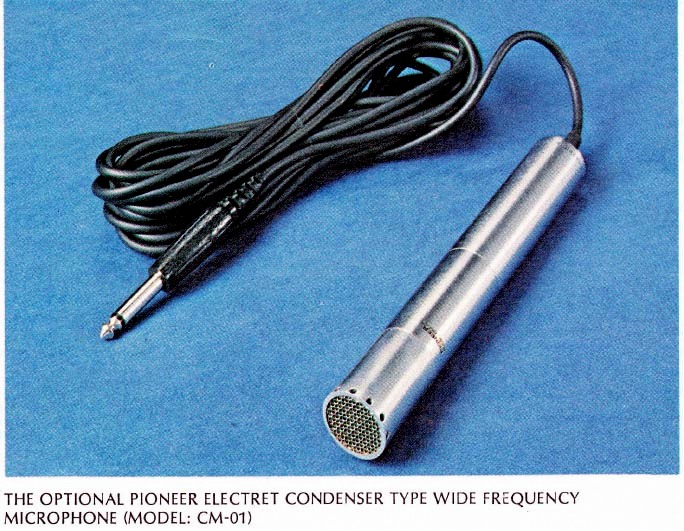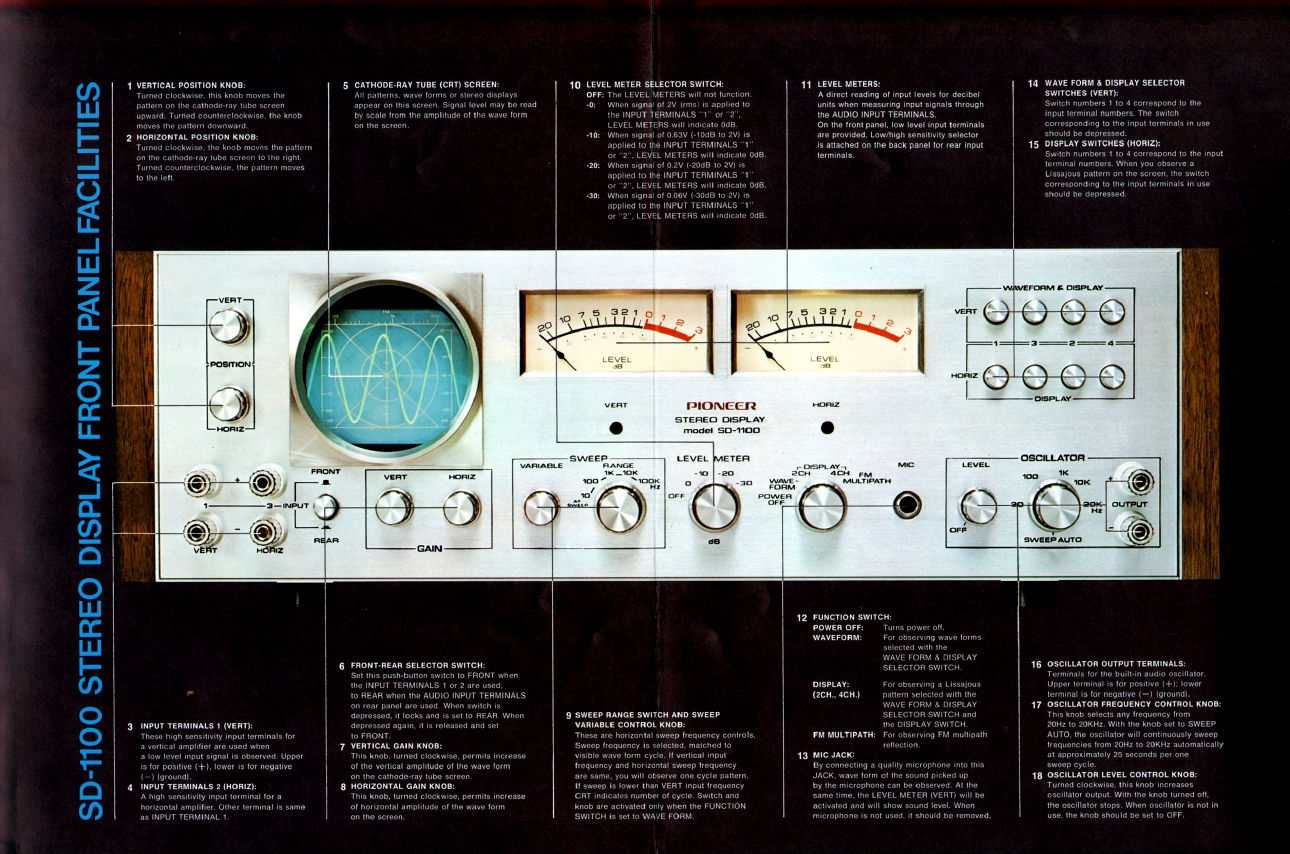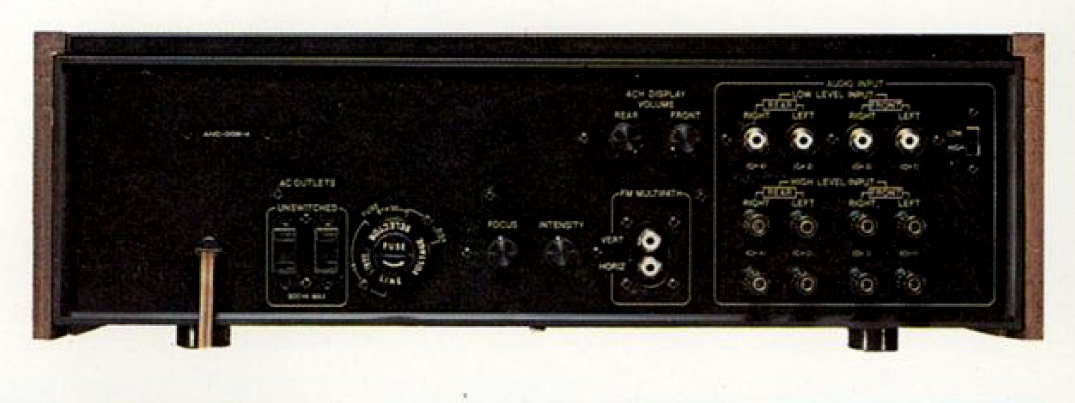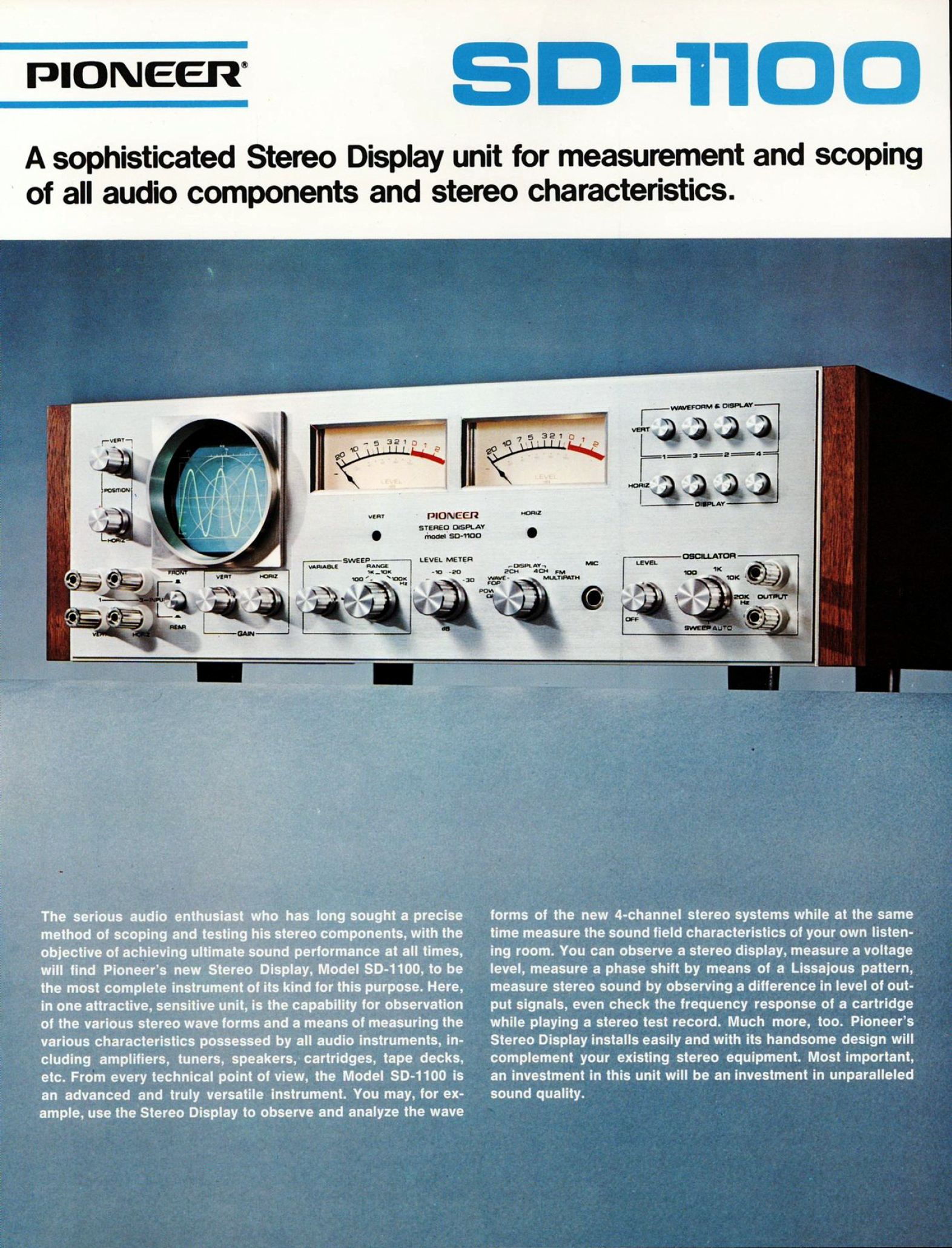Pioneer SD-1100
Data
General
- Manufacturer: Pioneer
- Model: SD-1100
- Type: Stereo Oscilloscope
- Years of manufacture: 1973 - 1975
- Made in: Japan
- Color: Wood / Metal Silver
- Power consumption: 25 watts (max.)
- Dimensions: 430 x 138 x 349 mm (WxHxD)
- Weight: 9 kg
- Original price approx.: 600 US-$, ~2'400 DM
Connections
- Number of inputs:
- Input terminals front: 3
- Input 1 (Vertical Channel 1)
- Input 2 (Horizontal Channel 3)
- Microphone (mono), sensitivity 0.2mV, 50 kOhm at 1 kHz
- Inputs Rear: 6
- Inputs 1, 2, 3, 4 (Cinch or banana plug, switchable)
- VHF Multipath Vertical
- FM Multipath Horizontal
- Input terminals front: 3
- Number of outputs: 1
- Front output: AF OSC tone generator, 2V
Specifications
- Oscilloscope:
- Braun's tube 75mm (electrostatic type).
- Vertical Deflection:
- Sensitivity Low Level: 20 mV P-P/cm
- Sensitivity High Level: 200 mV P-P/cm
- Frequency range: 5Hz - 250kHz (< -3dB)
- Input Impedance: 190kohm
- Input capacitance: 100pF
- Horizontal Deflection:
- Sensitivity Low Level: 20 mV P-P/cm
- Sensitivity High Level: 200 mV P-P/cm
- Frequency range: 5Hz - 250Hz (< -3dB)
- Eingangsimpedanz: 190kohm
- Eingangskapazität: 100pF
- Frequenzamplitude des Abtastweges (4 Bereiche): 10Hz - 100kHz
- Synchronschaltung: >3/8 inch on screen
- Internal synchronization system
- Additional circuit:
- Point Killer Circuit
- Tone generator:
- Frequency range: 20 - 20000 Hz
- Output voltage: 2V or more, adjustable
- Output stability: 20 - 20000 Hz, < ± 1 dB
- Output impedance: < 4.7 kOhm (1 kHz)
- Harm. Distortion:
- < 1% (100 - 10000 Hz).
- < 2% (20 - 20000 Hz)
- Sampling time: 25 seconds (20 - 20000 Hz)
- Output meter:
- Reference range: 0 dB at 2V
- Input sensitivity, switchable: 0 dB, -10 dB, -20 dB, -30 dB
- Response time: < 0.3 seconds at 0 dB, at 1 kHz
- Frequency range: 20 - 20000 Hz ± 1 dB
- 4-channel section:
- Sensitivity Low Level: 20 mV
Sensitivity High Level: 200 mV 4-channel display volume MAX.
Special Features
- Microphone connector front for measuring microphone
- Level control rear for picture tubes focus and intensity
- New also with Cinch inputs for inputs 1 - 4 on the rear side
- 4-channel display volume control front, rear (controls are on the back)
Remarks
- The second generation of Pioneer's classic (and rare) Test Instrument. It integrated an oscilloscope with waveform/lissajous/FM multipath display options and combines that with dual (V/H or L/R) level meter.
- The unit has an integrated frequency generator for sweep and sine and 4 separately controllable inputs.
- The SD-1100 is a stereo display device that can synthetically observe and measure acoustic properties such as various waves and also sound field property of a listening room.
- The stereo display can also be used to observe and analyze the waveforms of 4-channel stereo equipment and simultaneously measure the sound field characteristics of the receiving room.
- A tuner with multipath output can be connected and the alignment of the antenna can be optimized more easily.
- Two large dimension level meters can be used for power and voltage measurement as well as VU level meter.
- Input terminals for 4-channel are also prepared.
- The instrument is also equipped with a wideband frequency amplifier for a mono microphone. In this way, the sensitivity, acoustic frequency response and characteristics of the speaker system can be checked with an electret condenser microphone. The Pioneer microphone was optionally available as type Pioneer CM-01.
- Other models in the same series:
- Matching amplifier models in the same series:
Pictures
- Image: Pioneer oscilloscope SD-1100 Front
- Image: optional Pioneer electret condenser microphone CM-01
- Image: Pioneer SD-1100 oscilloscope front panel equipment.
- Image: Pioneer Oscilloscope SD-1100 Rear Panel Features
- Excerpt from brochure: Pioneer SD-1100
Reports
Links
- External link to download the brochure: [1]
- External link: "Hifi Archive": [httphttp://www.hifi-archiv.info/Pioneer/1973/p08.jpg]
- External link: "Pioneer Vintage": [2]
- External Link: "Classic Audio": [3]</-3dB)>



